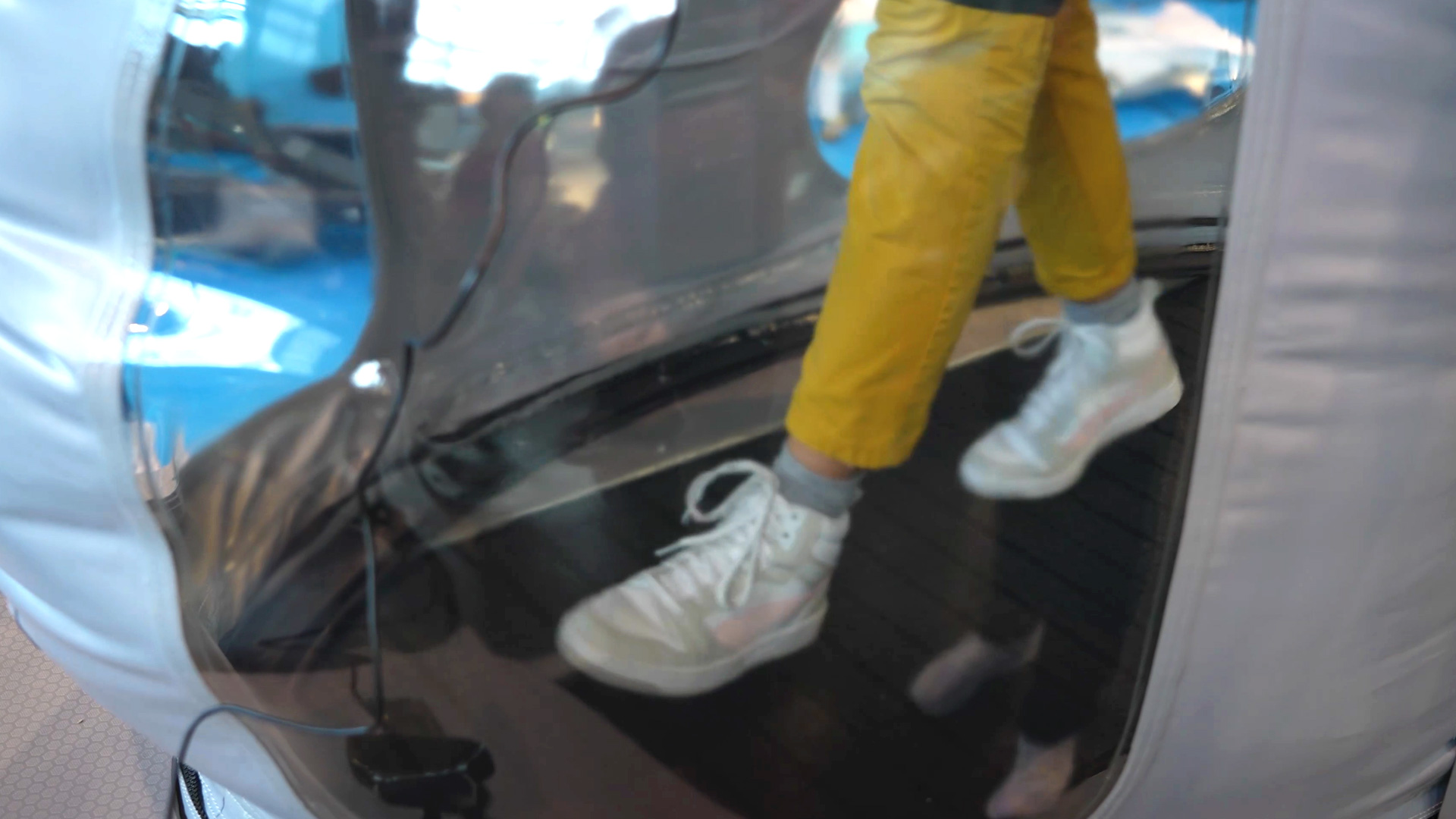An anti-gravity treadmill opens up new possibilities in physiotherapy treatment. Woodway uses a system that relieves patients through targeted positive pressure, allowing them to walk and run at an early stage. Especially after surgery or in cases of neurological disorders, this technology offers the opportunity to precisely control mobilization and gradually increase the load.
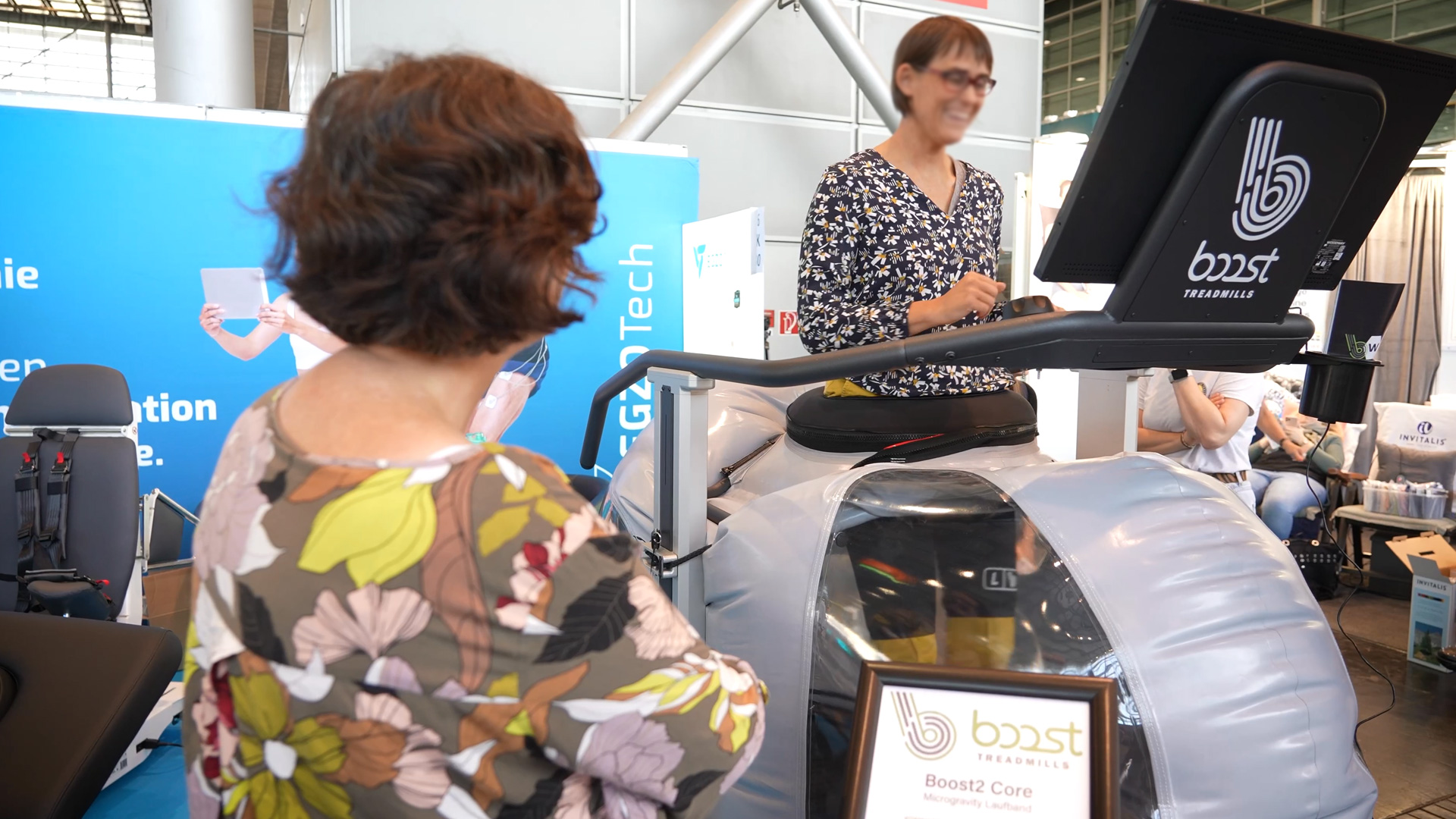
The principle is based on an air-filled airbag that lifts the body and thus reduces weight. Therapists can regulate the relief in stages – for example, to 80% of body weight when walking or 60% when jogging. This adjustment makes it possible to use movement early on in rehabilitation without putting excessive strain on the tissue. After knee or hip surgery, patients can practice walking again more quickly. In neurological therapy, for example after a stroke, the treadmill allows a controlled approach to motor processes.
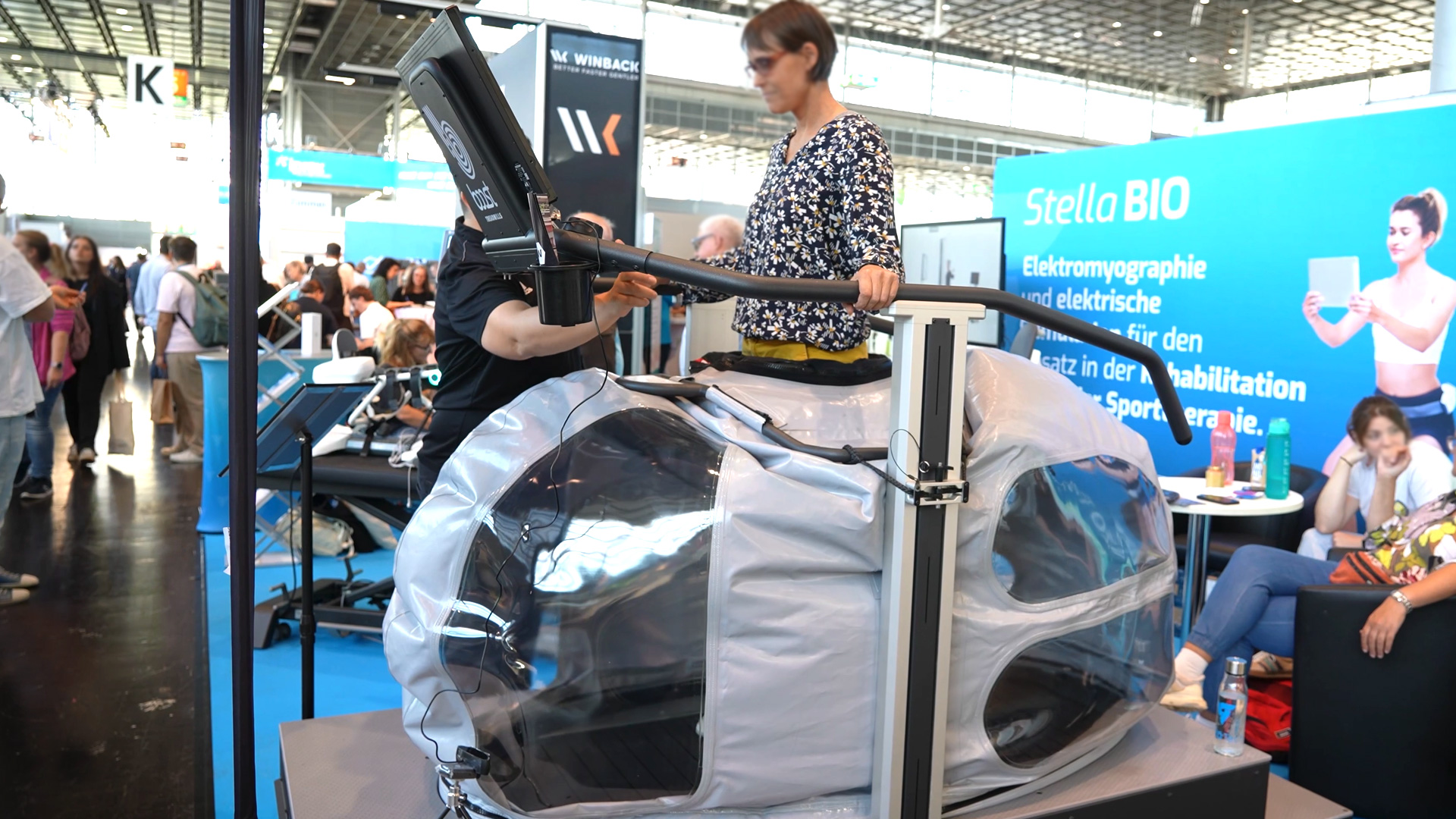
A unique technical feature is the running surface. While classic treadmills usually work with belt systems, Woodway relies on a slat construction. This cushions the impact, absorbs energy, and creates a point-elastic surface. This gives patients a more natural feeling of movement, similar to that on solid ground. Operators also benefit from quiet operation, high efficiency, and a long service life—factors that are particularly important in clinics with high utilization rates.
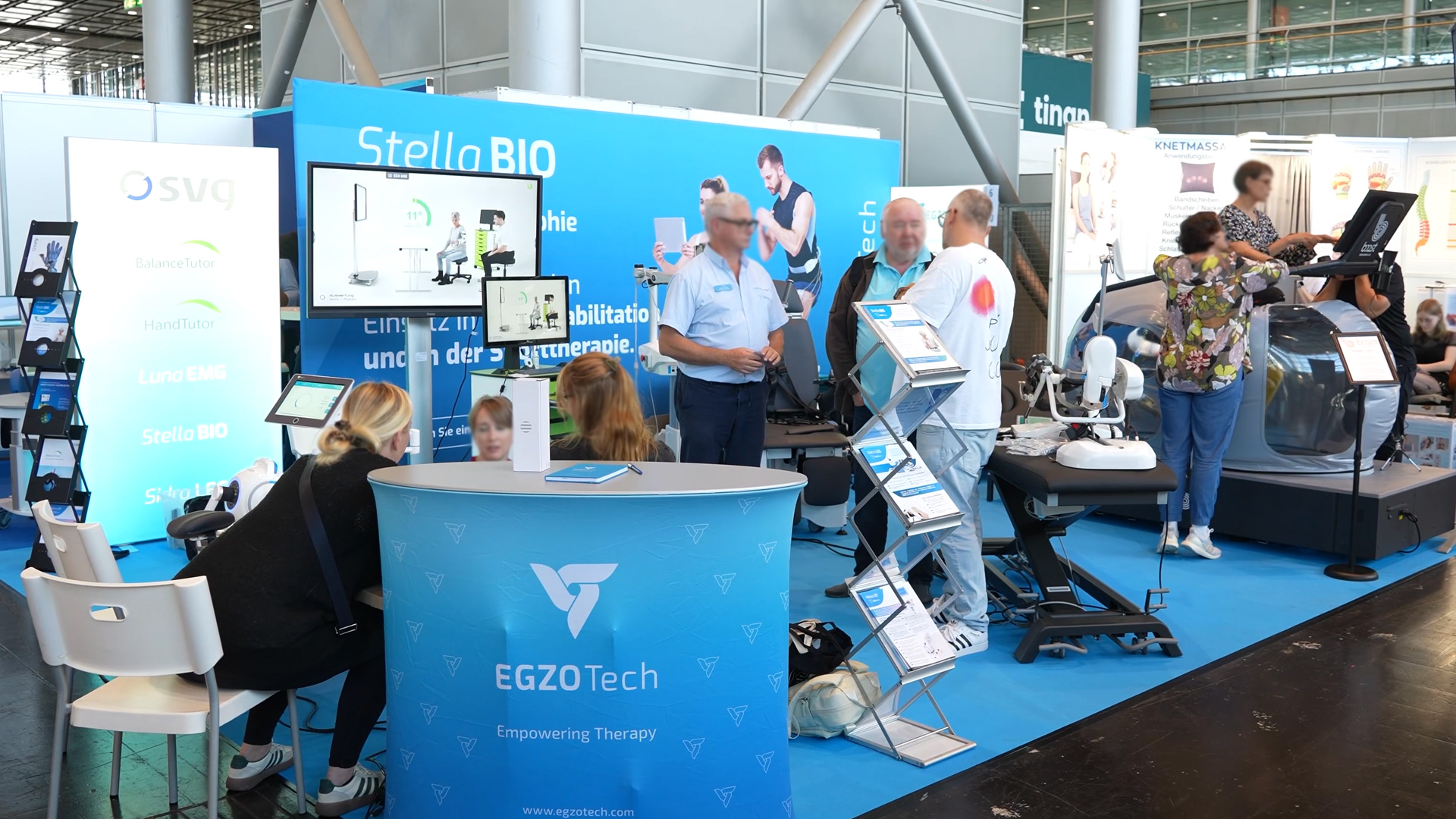
It is easy to use: patients put on airtight pants that are connected to the airbag. Depending on the pressure setting, the body is lifted and experiences the desired relief. Orthopedic practices use the technology primarily after operations or sports injuries, while neurological facilities use it to gradually build up movement patterns. Thanks to the percentage-accurate control, loads can be increased continuously, which increases safety and predictability.
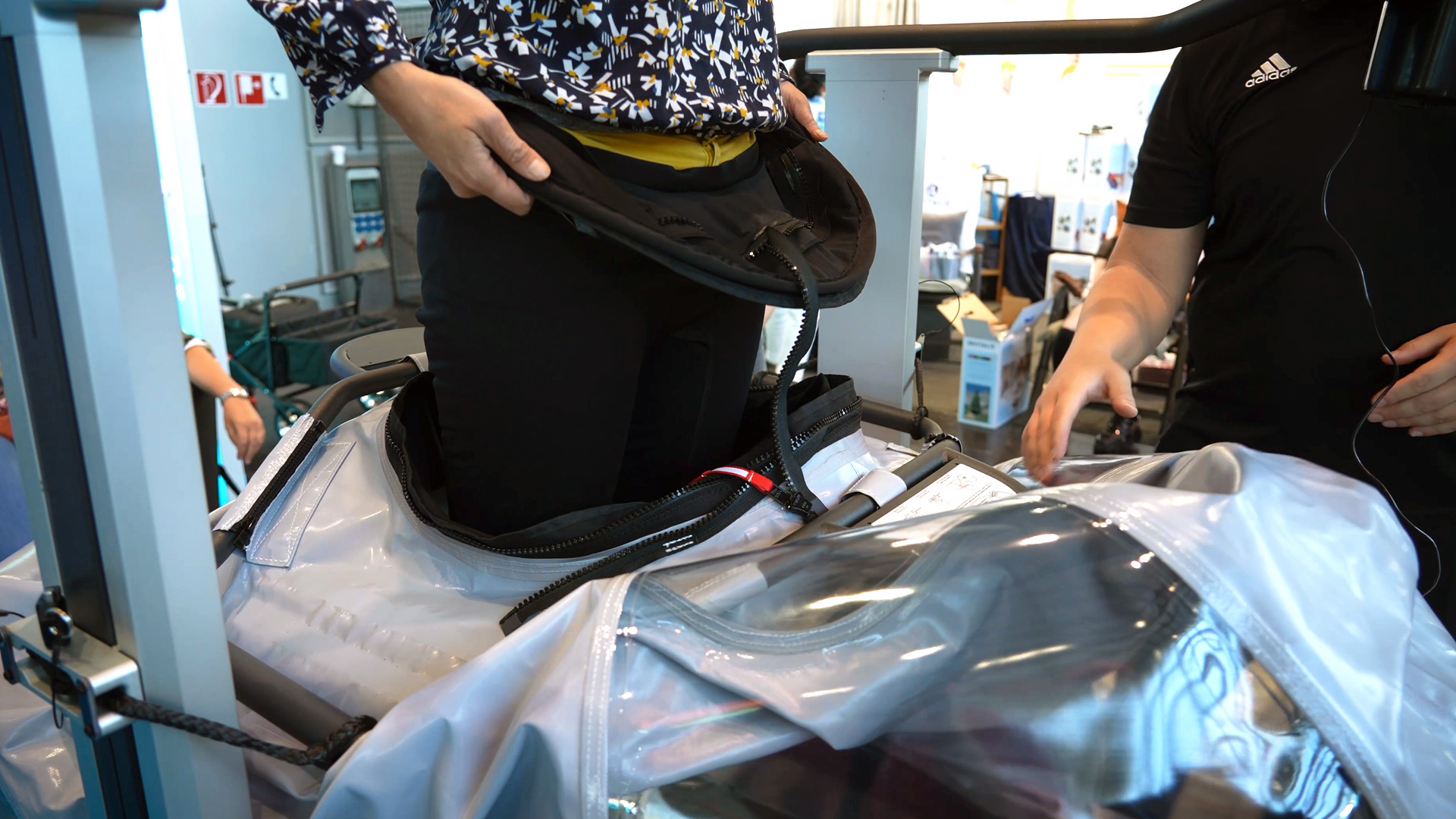
Rehabilitation clinics report that patients are able to get back on their feet more quickly thanks to anti-gravity treadmills. The transition from passive training to active exercise can be better timed because the relief can be precisely measured. Initial feedback also shows that the devices, as a supplement to conventional systems, are playing an established role in modern everyday rehabilitation.
